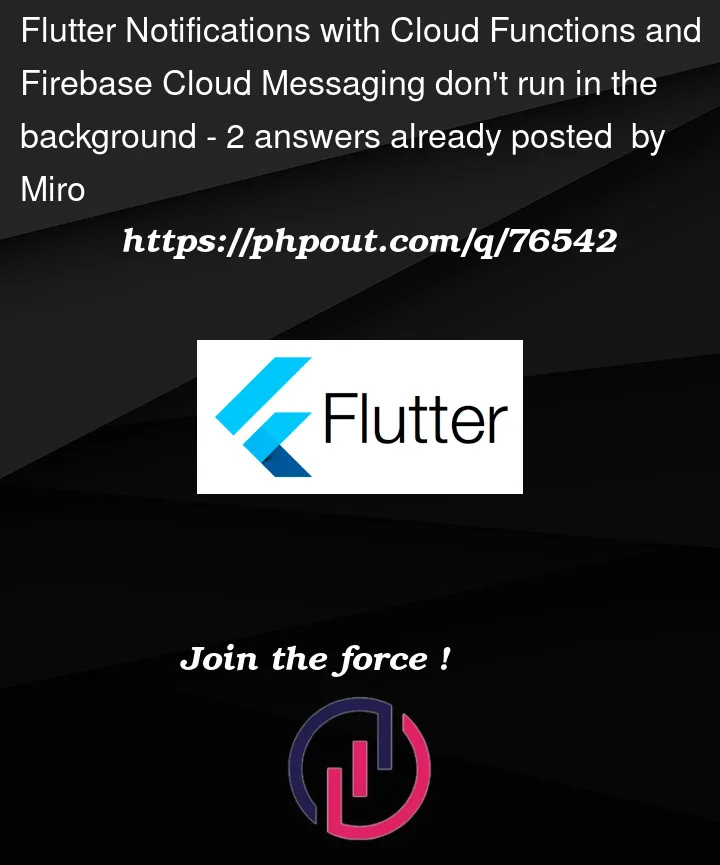I am building a Flutter app with Firebase Firestore, Cloud Functions and Messaging. I am trying to send and receive notifications.
The notifications work when:
- The app is in the foreground and I create a new document in my collection (the one listened by the cloud function)
- The app is in the foreground and I use the firebase console from the website
- The app is in the background (but still working) when I use the firebase console
But, the notifications don’t work when:
- The app is in the background and I create a new document in my collection
- The app is terminated. I don’t receive notifications neither from the console, nor from the Cloud Function.
I have setup Firebase Functions like this:
import { messaging } from "firebase-admin";
import * as functions from "firebase-functions";
const { initializeApp } = require('firebase-admin/app');
initializeApp();
const token = "<my-token>";
exports.pushNotifications = functions
.region('europe-central2')
.firestore.document("signals/{docId}").onCreate(
(snapshot) => {
return messaging().send(
{
token: token,
data: {
title: "A New Notification",
body: "Hello world!",
}
}
);
}
);
And on the front end:
class Notifications {
static final messagingInstance = FirebaseMessaging.instance;
static final Stream<RemoteMessage> foregroundNotificationsStream = FirebaseMessaging.onMessage;
static final StreamSubscription<RemoteMessage> notificationsListener =
FirebaseMessaging.onMessage.listen((RemoteMessage message) {
if (message.data.isNotEmpty) {
String body = '';
try {
final payload = message.data['body'];
if (payload is String) body = payload;
} catch (e) {
body = '';
}
// Show dialog
} else if (message.notification != null && message.notification!.body != null) {
// show dialog
}
});
static void getToken() async {
await messagingInstance.requestPermission();
final fcmToken = await messagingInstance.getToken();
Get.put(User()).updateAppUser(tokenStatus: fcmToken);
Database.updateDBUser();
}
}
in the manifest:
<intent-filter>
<action android:name="FLUTTER_NOTIFICATION_CLICK" />
<category android:name="android.intent.category.DEFAULT" />
</intent-filter>
<intent-filter>
<action android:name="com.google.firebase.MESSAGING_EVENT" />
</intent-filter>
</activity>
<meta-data
android:name="firebase_messaging_auto_init_enabled"
android:value="false" />
<meta-data
android:name="firebase_analytics_collection_enabled"
android:value="false" />




2
Answers
I fixed it by adding:
to the send() function. So now it looks like this:
Add background message handler.
See Background messages for details.
Use
getInitialMessageto get a message when a user clicks notification to open the application from terminated state.See Handling interaction for details.
Send a combined message (data and notification) to provide the same data in all the application states or a data message in which case the application is responsible to show a visible notification.
See Message types for details.